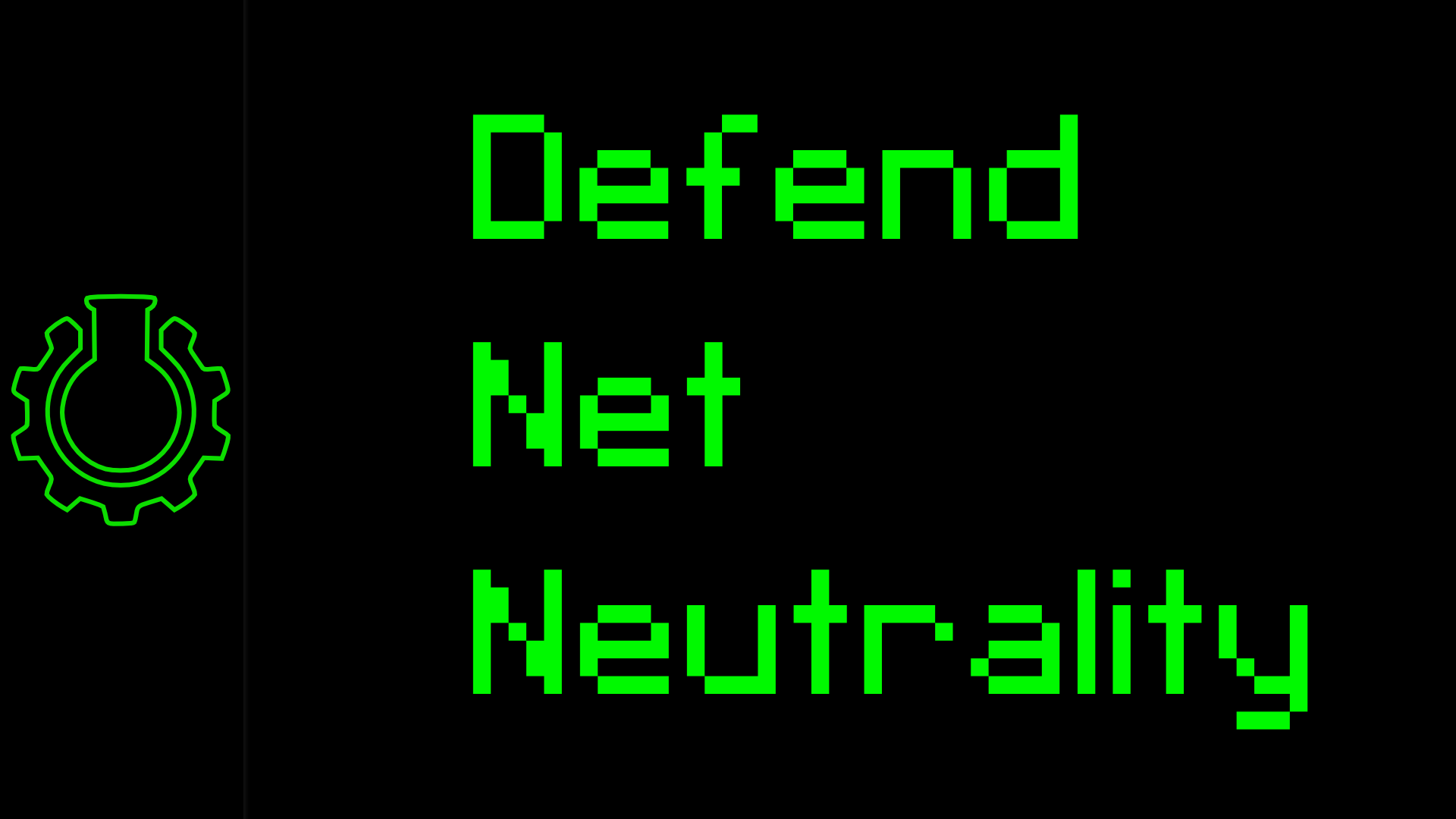Tell the FCC to reclassify broadband internet as a title II common carrier telecommunications service: http://goo.gl/xHnB4n
Script
Hello Internet,
Enjoying your Internetting session? Perhaps watching this video with lots of tabs open and full of interesting things to check out. The Internet is amazing and that's because of the rules which govern how it works, an important one of which is Net Neutrality: treating all data equally.
But some Internet Providers want to ditch this rule to insert themselves betwixt you and your data as the most meddlesome middlemen in human history -- to their benefit and our detriment.
How? Well think of the Internet as a series of pipes. Some are ocean-and-continent spanning pipes through which vast rivers of data flow.
You don't get access to those -- they're very expensive, and you couldn't handle it anyway.
But you do have a little pipe that connects to the big pipes, through which you can pull down and send out data. Your pay your Internet provider to maintain this pipe.
This rule means that your little pipe, cares not what flows through it: cat videos, discussion forums, calls or games. Whatever you're doing, you're using the whole pipe to do and no website gets preference over another.
Everyone wants faster Internet, but that requires more metaphorical pipe in the ground, the building of which is slow and expensive.
Now you may have heard your Internet provider on the news talking about how this rule prevents them from building 'fast lanes' for special kinds of data -- they want you to think they're expanding your access to the information superhighway. But removing this rule also gives them the power to speedbump the existing roads and charge more to use the 'fast' lane that was just what you had before.
The power to preference some data over others is the power to favor one video site over another and to limit a tiny part of the pipe for the video you're watching right now or trying to anyway.
We've been through this before: and constrain other companies in similar ways. Take the electricity. You pay for a certain amount and when it arrives in your house you can do with it what you wish. The electricity company doesn't get to decide that rather than build more power plants it's going to dim your bulbs and then offer a 'brighter bulbs' monthly subscription. And so it should go with the Internet. Watts are watts and bits are bits and we'll always need more and more.
And preserving this rule for the Internet has much wider impact than just if some company takes more of your coins. Not to be overly dramatic here, but preserving data equality may be one of the most important issues in a generation. Because without this rule Internet providers could cripple competitors they don't like.
Ever notice the same company that sells you internet also sells Cable TV and Landlines -- stuff The Internet totally replaces? Without data equality your Internet Provider could narrow the pipe for competitors until they either go out of business, pay the meddlesome middleman, or both.
It's like if one store in town super-promised to pay for fast roads everywhere as long as the town gave them absolute power over all the roads no backsies. If you agree to that deal don't be surprised when years later all traffic to them is fast and free while the roads elsewhere are slow and neglected.
This town is basically the Internet without net neutrality which some Internet Providers would love, but actual Internet citizens, not so much.
Having the pipes treat all data the same lets one guy with a good idea and a bit of programming knowledge make something today that's seen by millions tomorrow. But only because his data is treated equally with everything else in the pipes.
An Internet that treats data equally is an internet that continues to shower us with wonder. But an Internet where middlemen pick and choose what comes through the pipe is an Internet of stagnation for all and profit for few. Which is why some Internet providers will always want that control, so the cost of preserving our awesome Internet is eternal vigilance on the part of good citizens to defend Net Neutrality.


